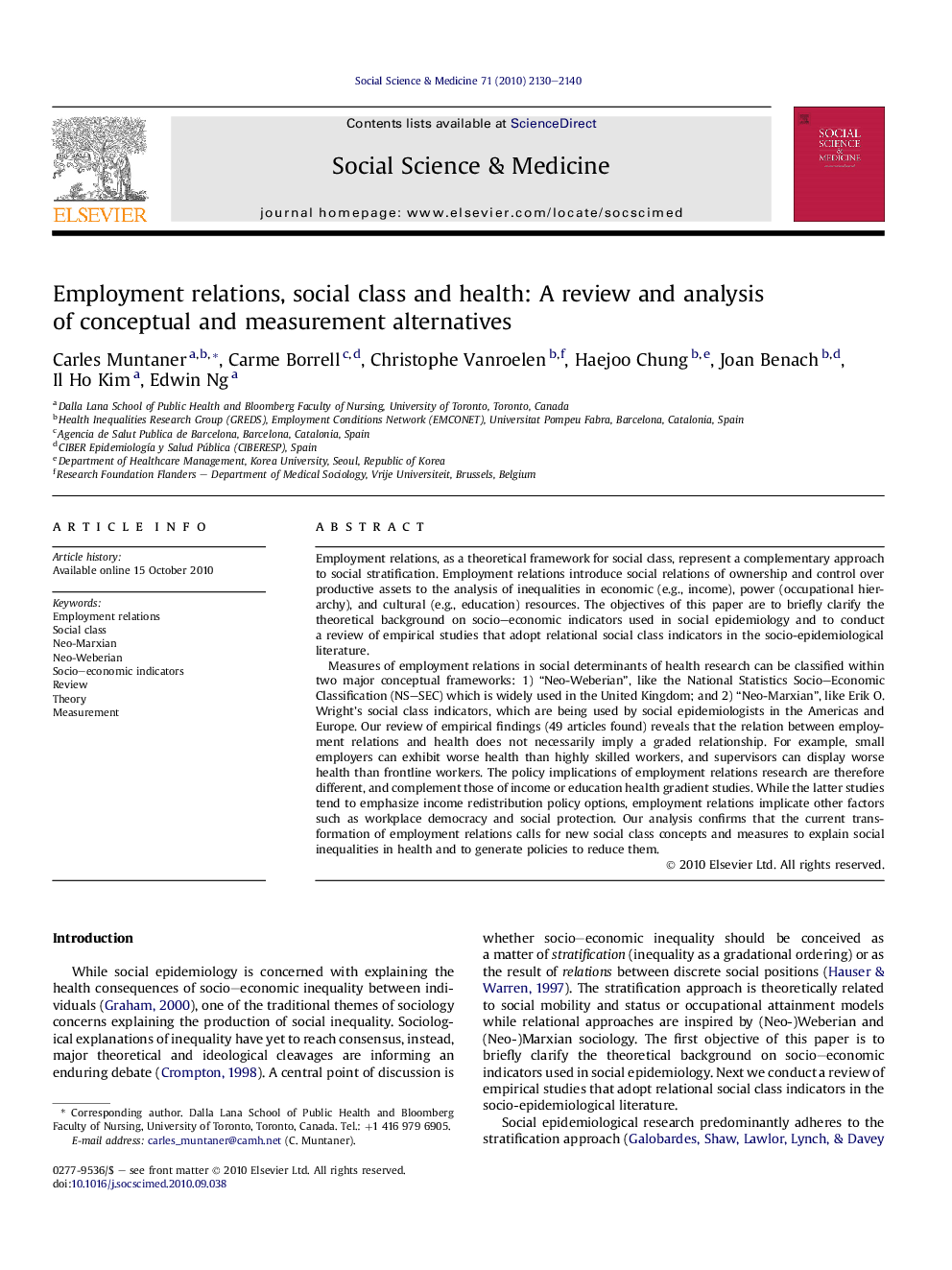| Article ID | Journal | Published Year | Pages | File Type |
|---|---|---|---|---|
| 10471987 | Social Science & Medicine | 2010 | 11 Pages |
Abstract
Measures of employment relations in social determinants of health research can be classified within two major conceptual frameworks: 1) “Neo-Weberian”, like the National Statistics Socio-Economic Classification (NS-SEC) which is widely used in the United Kingdom; and 2) “Neo-Marxian”, like Erik O. Wright's social class indicators, which are being used by social epidemiologists in the Americas and Europe. Our review of empirical findings (49 articles found) reveals that the relation between employment relations and health does not necessarily imply a graded relationship. For example, small employers can exhibit worse health than highly skilled workers, and supervisors can display worse health than frontline workers. The policy implications of employment relations research are therefore different, and complement those of income or education health gradient studies. While the latter studies tend to emphasize income redistribution policy options, employment relations implicate other factors such as workplace democracy and social protection. Our analysis confirms that the current transformation of employment relations calls for new social class concepts and measures to explain social inequalities in health and to generate policies to reduce them.
Related Topics
Health Sciences
Medicine and Dentistry
Public Health and Health Policy
Authors
Carles Muntaner, Carme Borrell, Christophe Vanroelen, Haejoo Chung, Joan Benach, Il Ho Kim, Edwin Ng,
